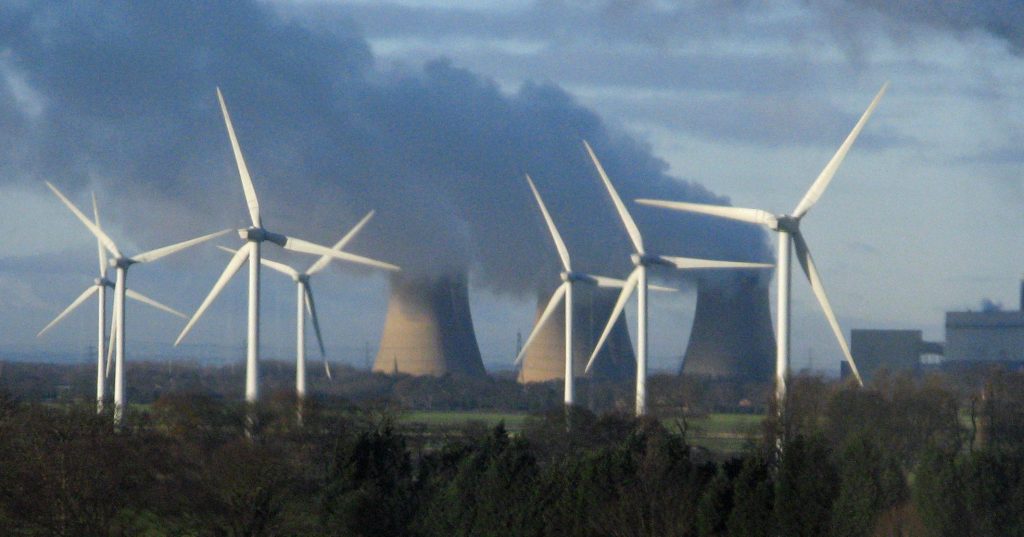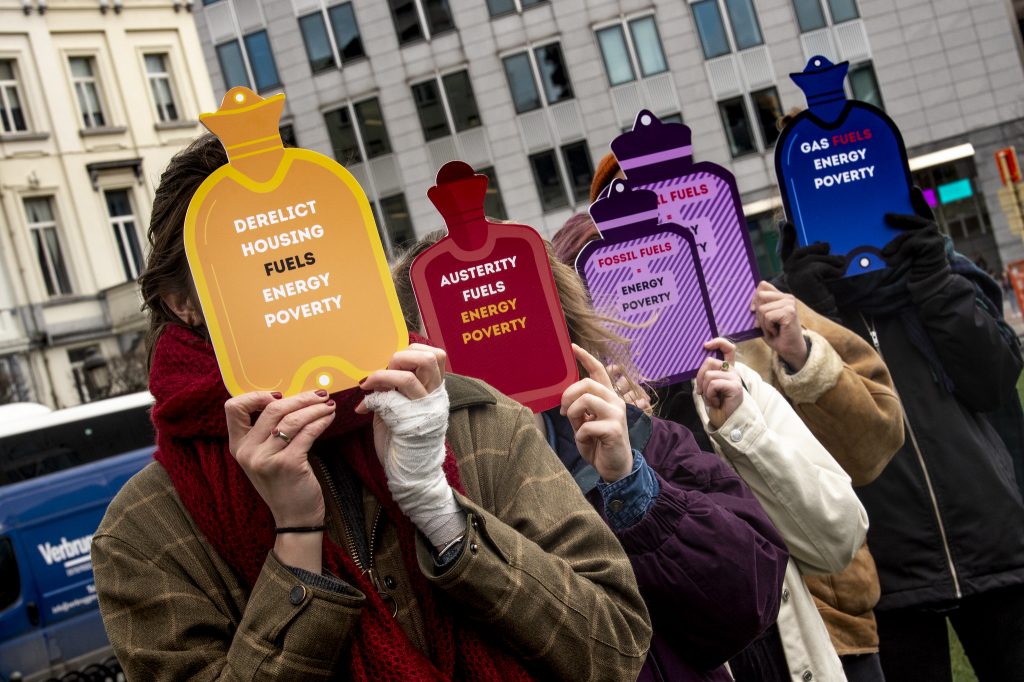Brussels, 3 November 2006 – Friends of the Earth Europe today demanded strong leadership by European governments at next week’s United Nations climate conference in the Kenyan capital Nairobi, as tens of thousands of people prepare for worldwide demonstrations tomorrow to demand urgent action to save our climate [1].
Friends of the Earth Europe called on EU leaders to speed up the negotiations to agree stronger commitments under the second phase of Kyoto, which will begin in 2012. [2] The UN climate conference in Nairobi will take place from 6th to 17th November.
Jan Kowalzig, climate change and energy campaigner for Friends of the Earth Europe, said in Brussels, “Governments at the UN climate conference in Nairobi must not forget that they’re negotiating the future of our planet. Negotiators must secure a future roadmap to drastically cut carbon dioxide emissions long-term.”
“Climate change could push the world into the worst recession in recent history; freak weather events are intensifying, deserts are expanding and agricultural production is decreasing. Tomorrow, thousands of protestors across the globe will demand urgent action to prevent climate chaos.” [3]
Friends of the Earth Europe urges the European Union to secure a clear roadmap for the negotiations on future action to fight climate change after 2012. Negotiations must result in drastic reductions by industrialised countries, new funds for sustainable energy systems in developing countries and compensation for poor people who had no role in creating the problem – but who are suffering already today from climate change disasters.
CO2 emissions in Europe are expected to be only 0.6 percent below 1990 levels by 2010, relying on existing measures and policies. This is in stark contrast with the EU’s international obligations under the Kyoto Protocol, to cut emissions by 8 percent over 2008-2012, the first phase of the Kyoto treaty. [4]
Mr Kowalzig concluded: “The European Union continues to waste energy and to subsidise coal and nuclear. Power companies have no incentive to switch from burning coal to renewable energies – why would they if they can still make record profits from dirty energy? Appallingly, only around six percent of the EU’s energy currently comes from renewables. Europe needs an energy revolution – with massive investment in renewables and in energy efficiency technologies. This is the only reasonable way to cut greenhouse gas emissions in the long-term.”
***
NOTES
[1] The demonstrations, following an international call to action by a broad coalition of environmental groups, will take place on 4 November 2006 in cities across the globe. More details.
Friends of the Earth participation in Europe:
Belgium: The Brussels Friends of the Earth group is doing a street action together with a broad coalition of environmental groups at the “Place de la Monnaie”, Brussels, between 10am and noon, together with school and youth groups. The theme of the action is “It’s 5 to 12. Time to wake up to Climate Change”. Alarm clocks will be handed to the participants and flyers and t-shirts will be distributed. Politicians will be invited and presented with a letter of demands in the form of a big wooden alarm. Contact karim@climnet.org
Finland: Friends of the Earth in Finland is part of the group organizing climate marches in six different cities (Helsinki, Jyv?skyl?, Kuopio, Tampere, Oulu and Turku) to demand that the Finnish government takes a leading role in its policies to tackle climate change. Energy efficiency and renewable energy must be the main means to cut CO2 emissions by 30% by 2020. More information on these events at www.ilmastomarssi.org . Contact person is Meri Pukarinen from Maan Ystavat , reachable on +358 50 329 3479.
France: Our French group “les Amis de la Terre” will do a big action in Paris together with the French Climate Action Network and several other groups. They will bring up some celebrities who are clearly suffering from climate change: Santa Claus stripped to his shorts, next to a melting snowman and a Yeti. Contact: coordination@amisdelaterre.org
Netherlands: The action of our Dutch group Milieudefensie is focussing on the danger of rising sea levels for their country, considering one quarter of the surface of the Netherlands is actually below sea-level and protected by dikes. Milieudefensie is organizing a bike tour along the topographical sea-level, to symbolize all the places threatened by the rising sea-level. Discussions with Ministers will take place as part of this event. Visit the website of the event: www.groenedraad.nl
Sweden: The local group of Friends of the Earth in Gothenburg is organizing a protest in which they are using balloons to symbolize the amount of CO2 emitted through a specific daily life action, for example the amount of CO2 in one small balloon representing 50m driven by a car and a big metrological balloon containing 5,4kg of CO2 representing the amount of CO2 emitted to get one kilo of pineapple from Ghana to Sweden.
United Kingdom: Friends of the Earth is part of the Climate Chaos Coalition, and part of the group organising a major rally in Trafalgar Square, London. The event involves a mass gathering of thousands of people to hear music, entertainment and inspiring speakers – all demanding that the British Government puts in place year on year emissions reductions in the UK, and shows leadership internationally by taking action on climate change. Various feeder events will also join the event – a big march of campaigners from a rally in Grosvenor Square outside the US embassy and thousands of students from People & Planet. Friends of the Earth is also part of the “I Count campaign”, signing up thousands of people to take personal and political action. Check for more info at http://www.icount.org.uk/
[2] See also Friends of the Earth’s more detailed media advisory at http://www.foei.org/media/2006/1031.html . The 12th Conference of the Parties to the UN Convention on Climate Change, taking place 6 to 17 November, is also the second meeting of the Parties to the Kyoto Protocol after it entered into force in February last year. Key issues are the planned ‘dialogue’ on future action under the Convention, the review of the Kyoto Protocol and future commitments by industrialised countries under a second Kyoto phase, modalities of the ‘Adaptation Fund’ of the global climate regime, as well as discussions on avoiding deforestation. See provisional agenda.
[3] A new report by commissioned by the UK government draws a gloomy picture on the effects on the global economy if climate change hits the planet full scale. But the report also notes that averting the crisis is well within our hands – at the costs of 1 percent of global GDP, avoiding economic damages of about percent of global GDP. See ‘Stern Review on the Economics of Climate Change’, published 30 October 2006,
see:
[4] A new report by the European Environment Agency shows that existing domestic policies and measures will, by 2010, reduce EU-15 greenhouse gas emissions by a net effect of 0.6 percent from 1990 levels. With additional domestic policies and measures the EU-15 might be able to reduce emissions by a further 4.0 percent. The planned purchasing of emission credits on the Carbon Markets will reduce emissions by a further 2.6 percent at a cost of EUR 2 830 million – money that had better been invested in renewable energies and energy efficiency in Europe rather than buying ‘hot air’ e.g. from Russia.







